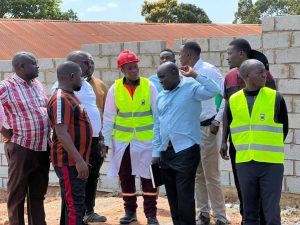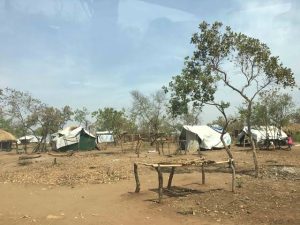Cotton Farmers in Kasese Cry Foul over Pests
2 min read
Cotton farmers in Kasese district are decrying the invasion of pests and diseases which has affected the quality and quantity of cotton.
The farmers mainly from the areas of, Mubuku, Kabirizi, Busunga, and Rwembyo say amidst other challenges such as price fluctuations of farm produce, the prime crisis is the pesticide-resistant pests such as bollworm worms, legacy, yellow termites and cotton stunners that affect the germination of the seeds.
One plant is expected to produce at least 20 balls but this has reduced to between 10 and 15 due to pest invasion.
Enock Nyabongo a lead cotton farmer under Mubuku cotton farmer’s association-MCFA attributes the low prices to the poor seeds that have affected their output. He says the seedlings produce small and tiny balls that do not sprout.
John Eneka another farmer says earning from the cotton production have gradually declined due to the effects of pests. He adds that despite efforts to spray, the pests have remained persistent.
Joy Mbambu, a cotton farmer, says she cultivated three acres of cotton and was expecting at least 2 Million Shillings from each of the acres. However, she might get about 100,000 shillings after most of the cotton balls dropped off. She wants the government to regulate the pesticides on market.
Lillian Kiiza, a field extension officer for Western Uganda Cotton Company-WUCC Limited wants the government to offer better prices for farmers so that they can have equitable resources to invest in their farms. She also guides government to do thorough testing on the new pesticides that are flooding the market.
Nicholas Penn, the Director Western Uganda Cotton Company-WUCC limited says they follow minimum prices set by the Cotton Development Organization.
However, he says the prices fluctuation has initially been caused by people who try to buy large volumes of cotton by using prices as a tool to persuade farmers. Penn also cites the lack of finances in the company which hinders their capacity to buy cotton from every farmer at a good price.
Adrian Katwetegeke the field officer of Cotton Development for western region however says most farmers apply pesticides without seeking technical guidance. He also attributes the increase in pests and diseases to the heavy rains that battered the region last year.
Currently, a kilo of cotton is buying between 1,600 and 2,100 shillings in Kasese District.
URN





